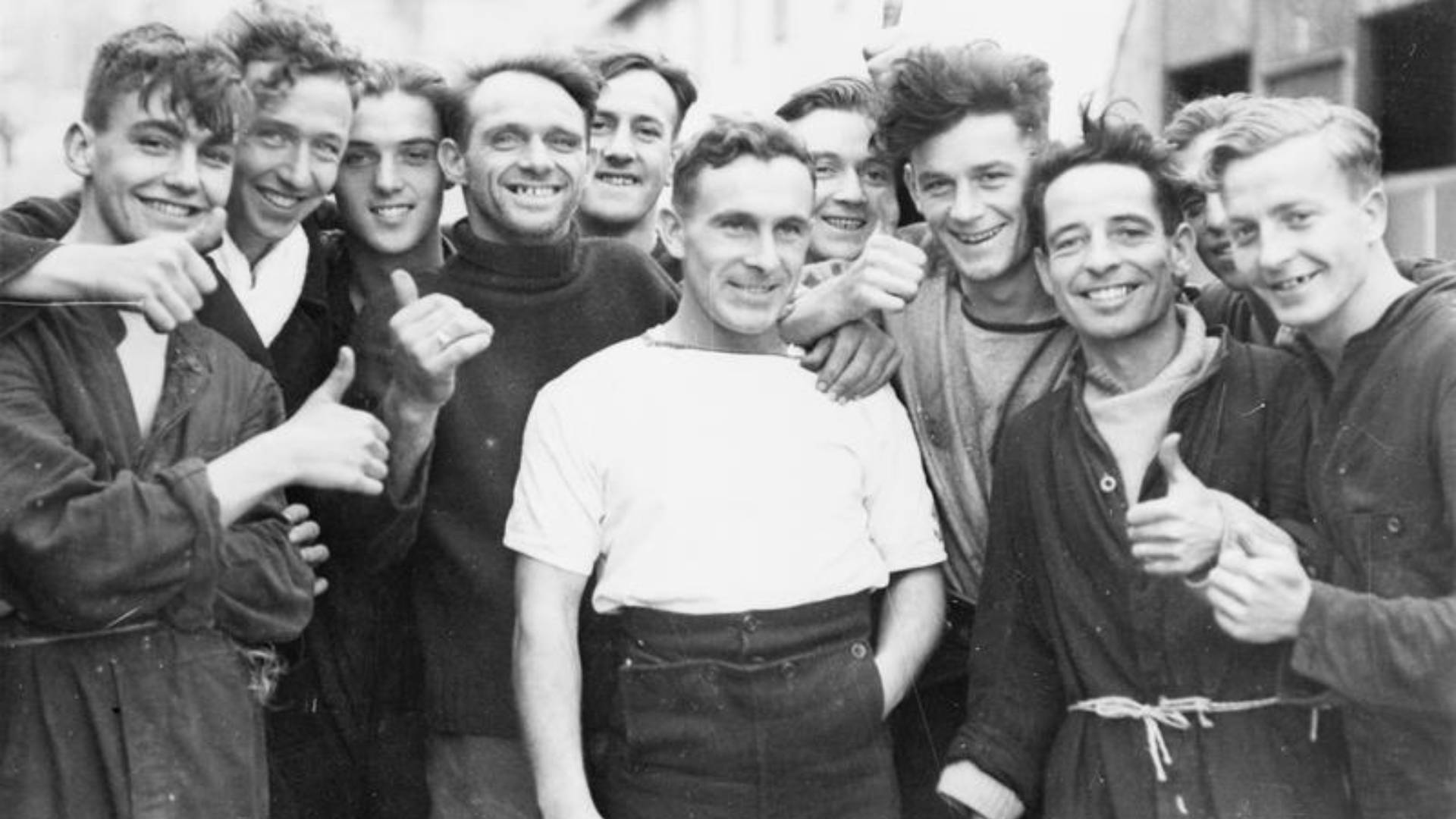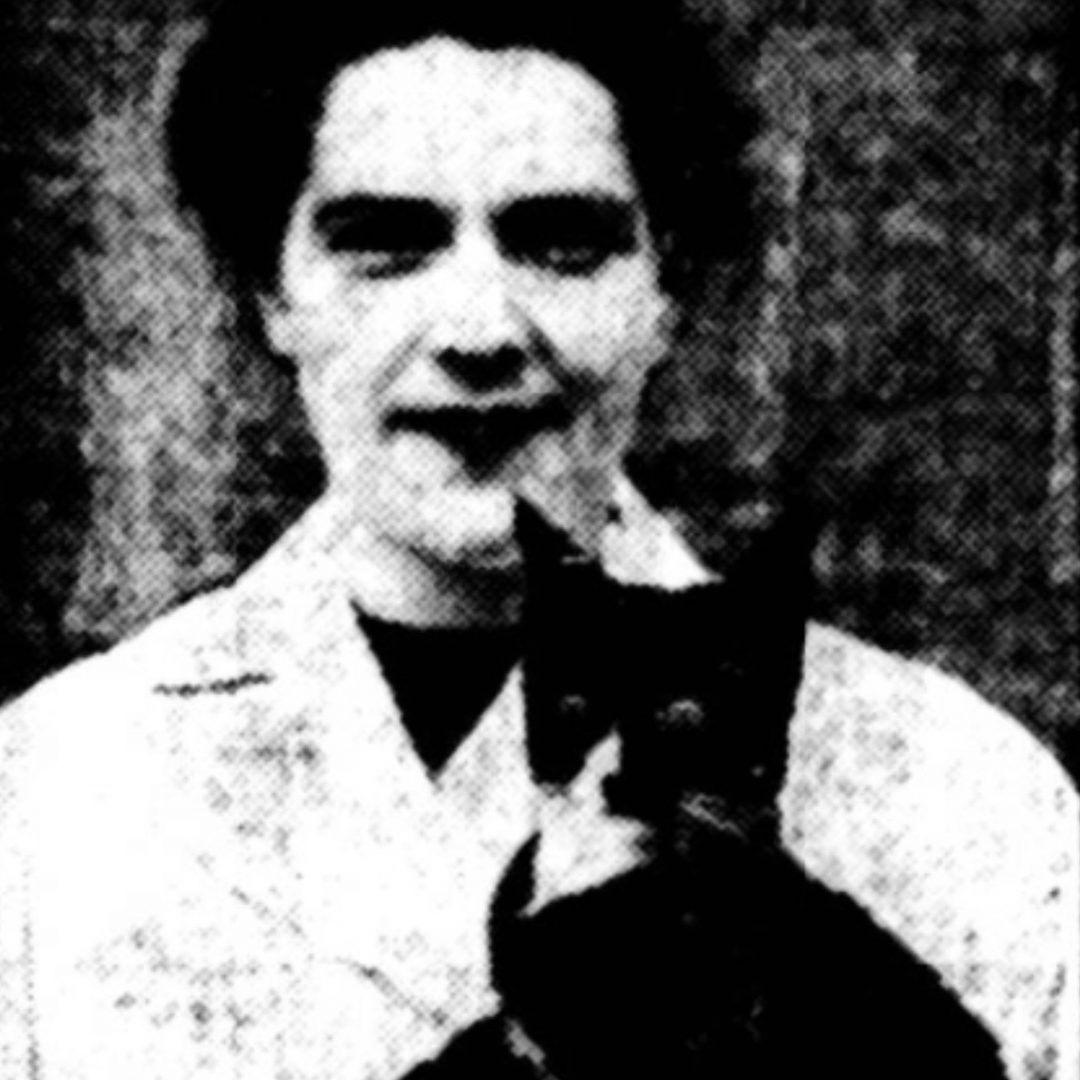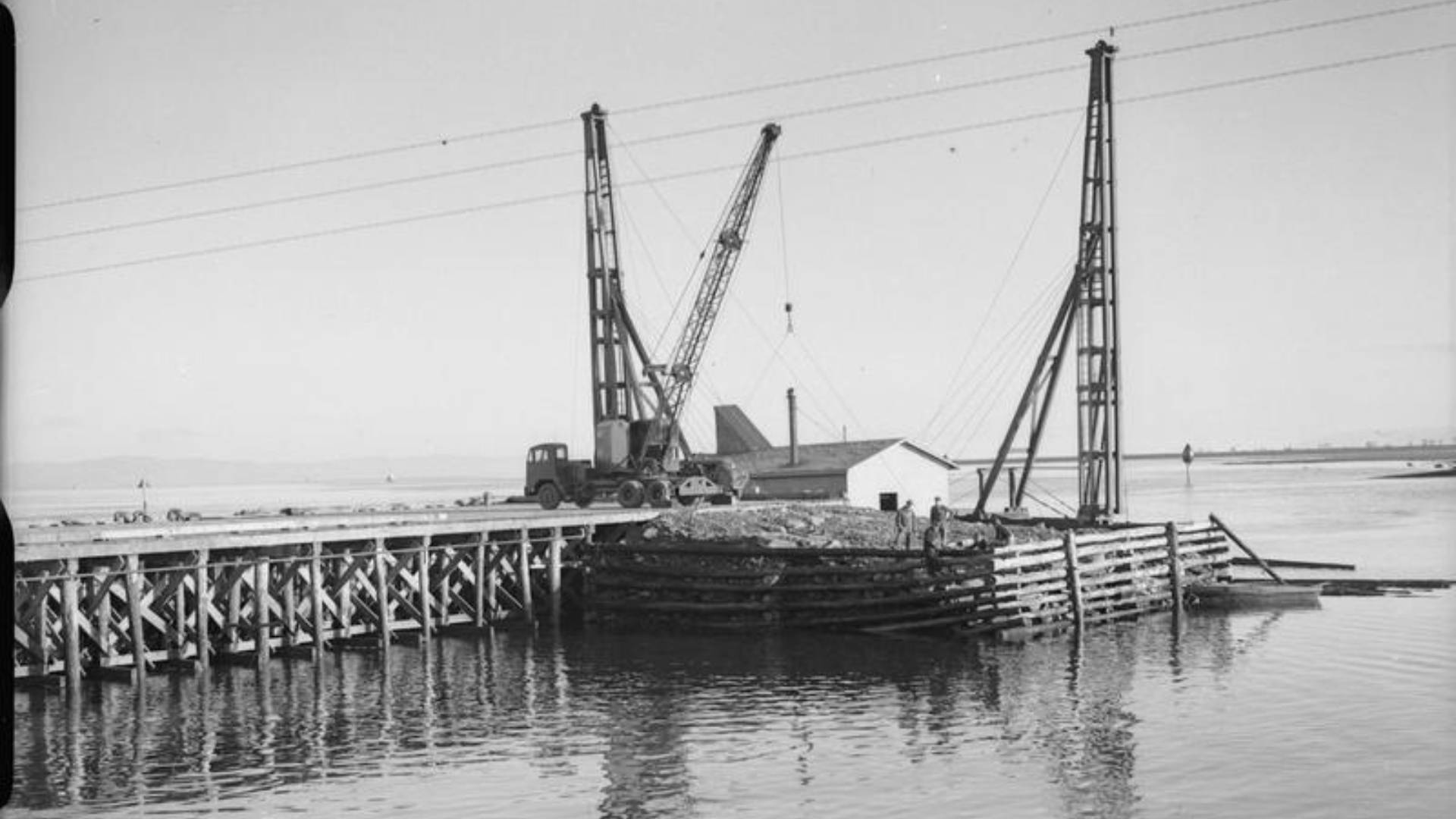In 1941, Oscar was a 1-year-old cat, but the young feline had come through more in the Second World War than some of the toughest human seafarers. The small-of-build black cat with white v-shaped marking on his chest, white paws, and long tail had been the ship's pet on the Kriegsmarine battleship, Bismarck. That, however, was only the start of Oscar's adventures.
On the sinking of Bismarck in the Atlantic on 26th May 1941, crew members of H.M.S. Cossack rescued Oscar. That vessel too went down on 23rd October 1941, struck by a single torpedo from U-563. Somehow, Oscar made it on board H.M.S. Ark Royal. On 14th November 1941, Ark Royal suffered a similar fate to Oscar’s previous ships. The plucky feline clung to a floating plank for 3 hours before being rescued once more. By 19th November 1941, newspaper reports suggested Oscar was safe and well in Gibraltar. Unbelievably, having survived 3 sinkings at sea, the lucky black cat somehow made it to the port of Derry/Londonderry.
On 9th December 1941, the Londonderry Sentinel newspaper reported that Oscar was enjoying his 4th life, this time in Ulster. He took up residence at the Londonderry Sailors’ Rest under the management of Miss Margaret Hill of Enniscorthy, Co. Wexford, Ireland. There, he preferred to drink water rather than milk, and would often sup from flower vases.
Every time Oscar hears the men’s voices he sets up a howling match, but after being torpedoed three times, he deserves shore comfort and safety. I think he will get over this.
Miss Margaret Hill, Londonderry Sentinel, 9th December 1941.
Oscar’s recovery was not the only reason for his confinement and close protection.
Sailors are terribly fond of cats. Oscar might be spirited away if he wandered far when the lads are about, and, of course, nobody would know where he had gone to.
Miss Margaret Hill, Londonderry Sentinel, 9th December 1941.
By 1942, Oscar was something of a superstar in Northern Ireland, even making his way onto radio programmes.
Oscar, the German black cat from the Bismarck, which was also rescued from the Ark Royal, and Cossack, and later brought to Londonderry, has broadcast in a Forces programme from Londonderry. His story was told, and Oscar himself made himself heard to millions of listeners.
Londonderry Sentinel, 10th March 1942.
This memorable appearance on the airwaves, in turn, inspired a poem published some weeks later in the same newspaper by an author known only as G.L.B.
Oscar of the Bismarck
So Oscar, cat of Bismarck fame,
Has broadcast, if you please,
And Oscar’s been to sea, my cats,
In “battle and in breeze”,
While you were dozing by the fire,
Or ‘neath the apple trees.
Our old grey cat he blinked at me,
And purred a sleepy purr,
While Tubby, hunter of the rats,
Licked at his snowy fur,
And raised his head and grimly eyed,
A distant passing cur.
But has he lain in the long grass,
A summer afternoon,
And has he ever stalked the birds,
Or sung a love-sick tune,
And has he ever hunted rats,
Beneath the Harvest Moon.
My big black Persian,
Sprightly leaped into an apple tree
“Poor Oscar sailed upon a raft
Upon the stormy sea
Oh, some might go adventuring,
But here I’d rather be.”
But Oscar perhaps might answer thus,
In spite of war and fog,
“No other cats had I to fight,
And met no growling dog,
Now ended in my seafaring,
On shore I gladly jog.”
As well as his remarkable exploits at sea, Oscar was in part responsible for one of the first known G.I. Bride romances in Northern Ireland. In early 1942, Miss Margaret Hill of the Sailors’ Rest married Paul John Boone of Pennsylvania, U.S.A. The young American had come to Derry/Londonderry in July 1941 as a technician. He was one of many tasked with preparing the city’s large naval base for the imminent arrival of United States Forces.
The pair met in Derry/Londonderry and bonded over their shared affection for the popular little black and white cat. Miss Hill gave up her role as Manager of the sailors’ home and planned to travel to the United States of America with her new husband. Oscar, of course, would hopefully accompany the new couple on another seafaring adventure.
Black cats are lucky, you see. After the war, I intend taking Oscar to America to our future home. It may be fate, but it is strange how we both came to Northern Ireland at the same time. Anyway, I am very happy now, and looking forward to going to America with my husband.
Miss Margaret Hill, Londonderry Sentinel, 5th February 1942.
Unfortunately, records suggest that Oscar – sometimes mistakenly referred to as “Unsinkable Sam” – died of natural causes in Northern Ireland in 1955.


